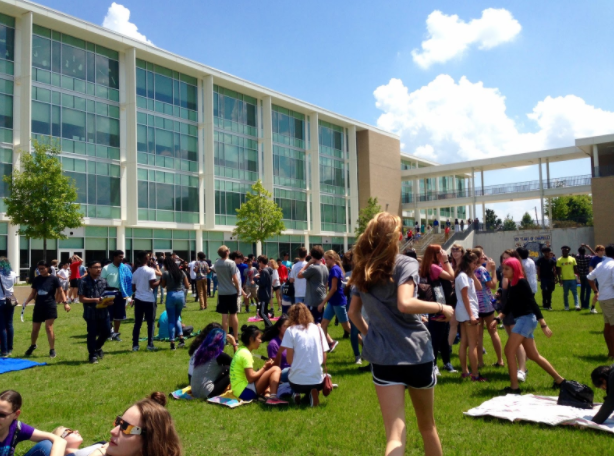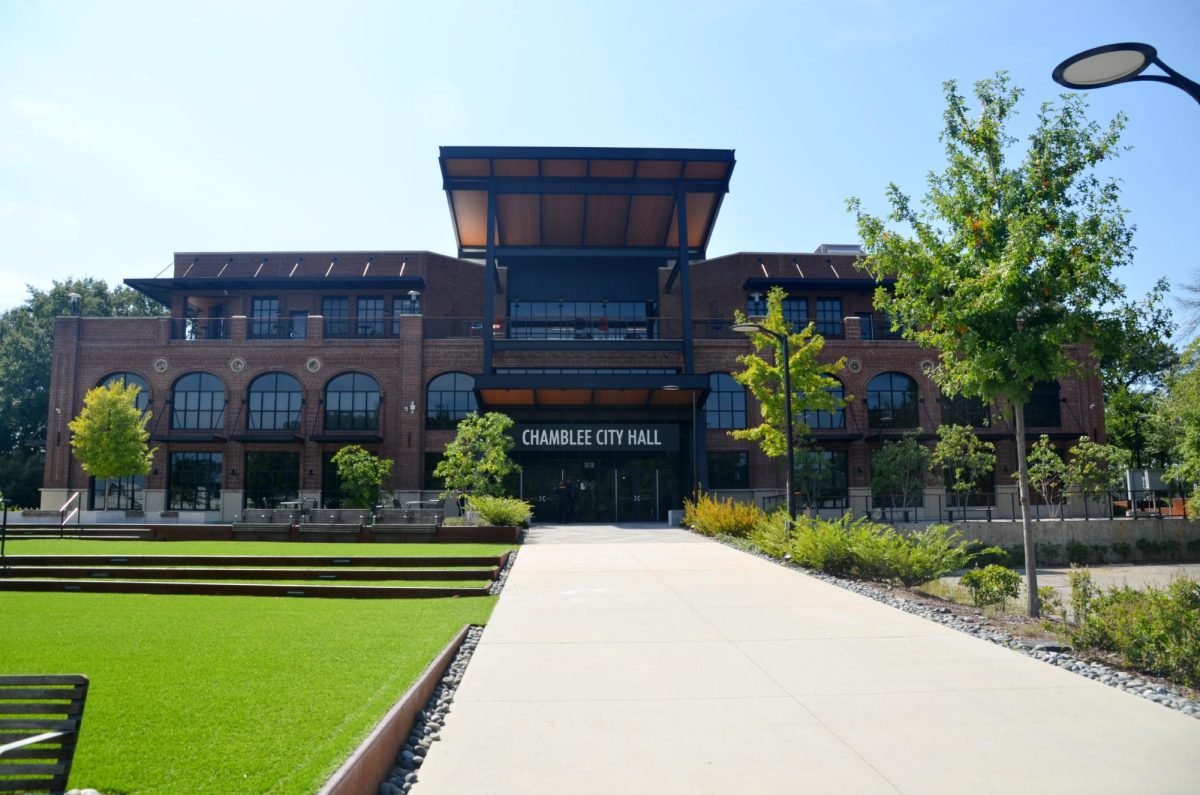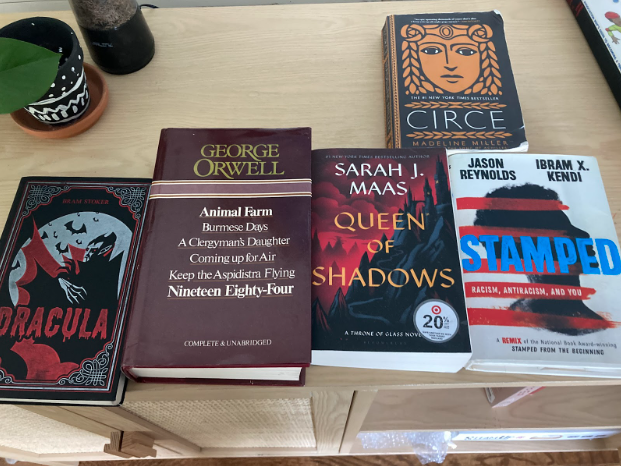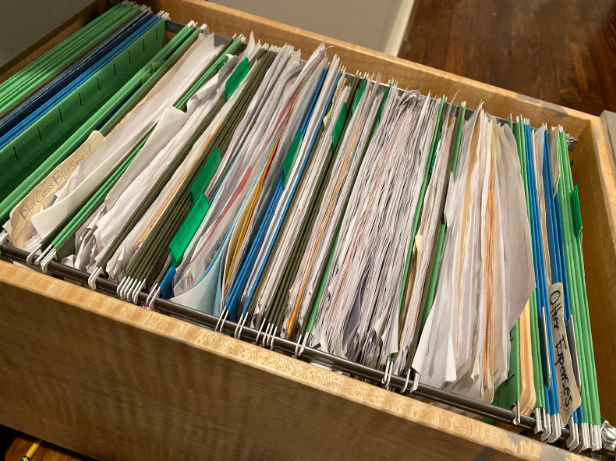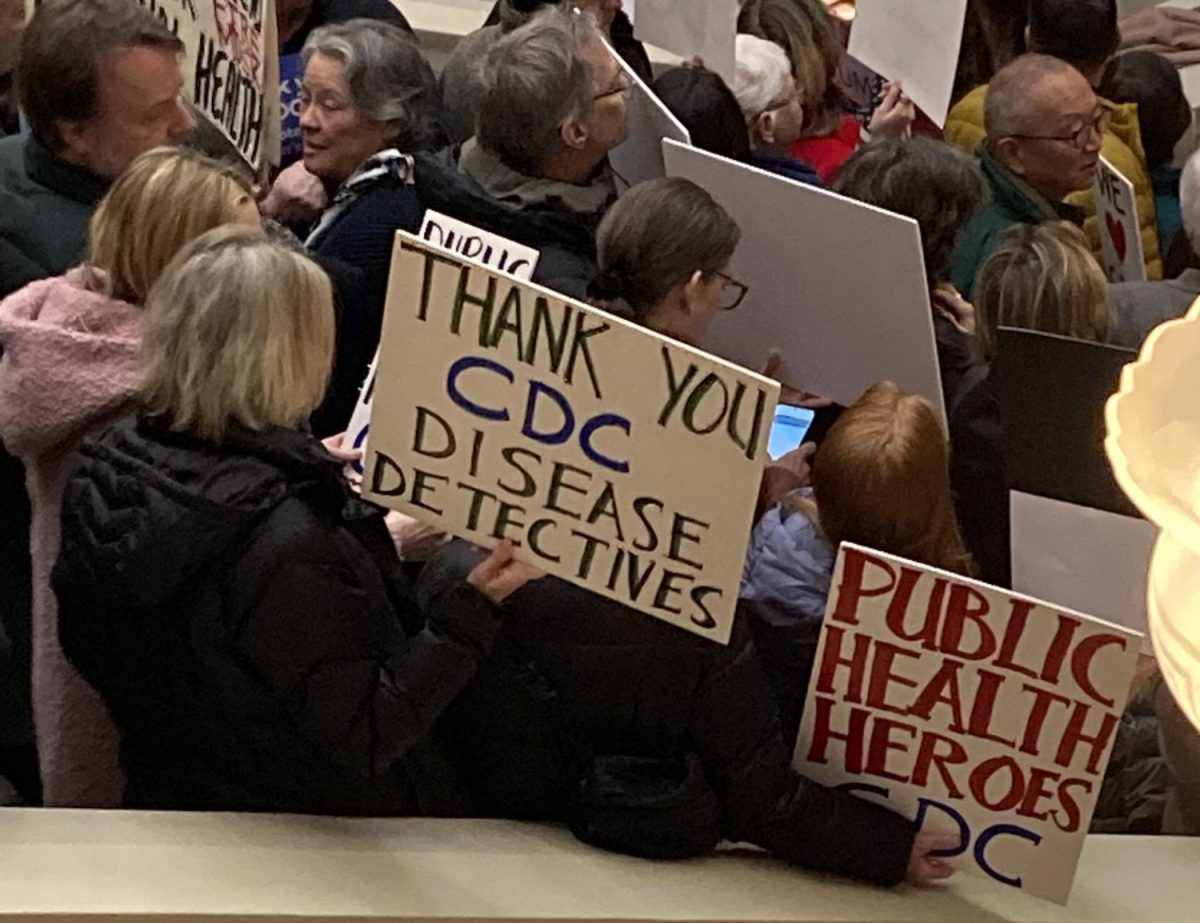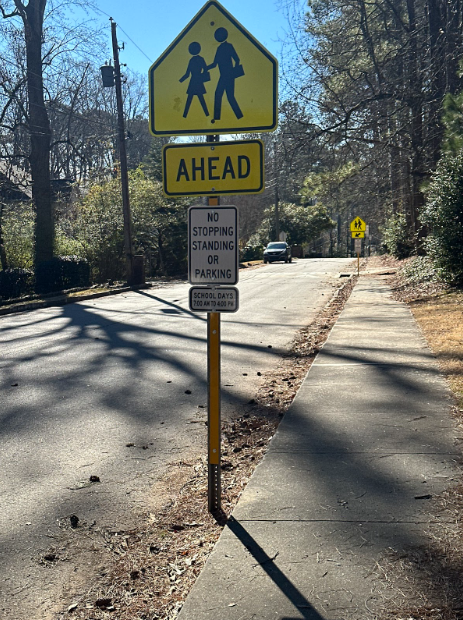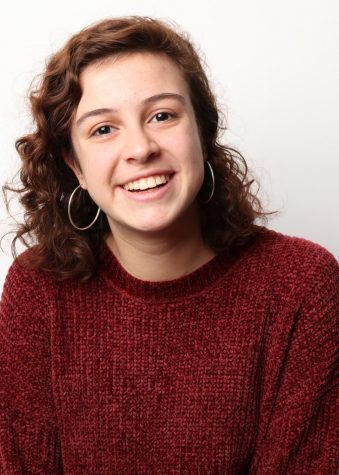August 21st brought a spectacular solar event to Chamblee High School. As the moon made its way across the sun for the first time viewable from Georgia in 99 years, Chamblee’s students were given protective glasses and allowed out of class and onto the practice field to marvel at the sun.
“They just threw us out onto the practice field and said ‘here have a party for an hour an hour half’,” said senior Chloe Hyatt. “I guess that’s okay.”
At Chamblee, a total solar eclipse was not visible, but a partial eclipse occurred, with 97% of the sun covered. Beginning at around 1:30, a tiny sliver of the sun disappeared behind the moon.
Prior to the eclipse, the student body was abuzz with anticipation.
“Eclipses don’t just happen every day,” said Kai Patterson, a senior and vice president of the Astronomy Club. “It’s a pretty cool event to happen in our lifetimes.”
Despite the excitement surrounding the event, several students felt anxious about the damage the eclipse would be capable of.
“It’s almost kind of terrifying to think of how it’s going to look and how I could go blind from looking at it,” said junior Meghan Ashley. “But it’s also a really cool thing that I don’t want to miss.”
Rumors of total darkness and eerie happenings flew among students.
“My mind is going to be blown. It’s going to be cold, and I’m going to see animals,” said sophomore Sania Hassan before the day of the eclipse.
While some students eagerly awaited the eclipse, others were more skeptical.
A majority of the eclipse planning was put into the hands of the science department. Shaheen Begum, the department chair, was given the power to manipulate the bell schedule on the day of the eclipse.
“I was very happy that Ms. Braaten was open enough and trusting the department to plan for this event,” said Begum.
DeAnn Peterson, Chamblee’s AP Biology and AP Environmental Science teacher, is also the Astronomy Club sponsor. She knew what was to be expected of the partial solar eclipse and knew that it was not going to be as dramatic as a total solar eclipse.
“I knew that it wasn’t going to be completely dark, and I know I’ve heard kids talking about [how] it was kind of disappointing because it didn’t get totally dark,” said Peterson.
Following the time spent on the practice field, feelings of disappointment circulated among the students. Many felt underwhelmed or let down.
“The eclipse was a waste of time,” said freshman Imsha Hasnani. “I don’t know why we were out there if it wasn’t going to get dark.”
While some Chamblee students were confined to the practice field, others traveled out of town in order to see the total solar eclipse. The path of totality ranged all the way from South Carolina to Oregon, prompting several students to travel to both North Georgia and the Carolinas.
Junior Ginger Whaley traveled to South Carolina and brought some important provisions.
“We had themed snacks,” said Whaley. “We ate Sun Chips and MoonPies.”
Sophomore Hattie Carter took a trip to North Carolina near Rabun County, Georgia, right in the center of the path of totality. She and her grandparents enjoyed two minutes and 30 seconds of total darkness.
“Full totality is the coolest thing in the world,” said Carter. “The whole sky around you is lit up, except for the one part that you’re standing at.”
The day before the eclipse, Carter spent time with her grandparents antique shopping and enjoying the the cooler weather. She also had the opportunity to meet a National Aeronautics and Space Administration (NASA) astronomer, who told her some important information about the upcoming eclipse.
“He [the NASA astronomer] talked about what was gonna happen, what totality actually meant, and how it’s different from a lunar eclipse,” said Carter.
Several Chamblee students traveled to Lake Hartwell, a lake along the border of Georgia and South Carolina, which is also in the path of totality. Teresa Maloney was one of those students.
“We went tubing around the lake and had a really fun day,” said Maloney. “We wanted to make the most of our day off, seeing the eclipse.”
Maloney spent the day at her friend Lauren Carter’s lake house, where they prepared to watch the eclipse from Lauren’s boat out on the lake.
“We didn’t actually notice that the eclipse was starting,” said Maloney. “We were joking around about it starting and then we put our eclipse glasses on and looked up at the sun, and then we were like ‘Oh, it’s actually starting.’ It was pretty funny.”
On Lake Hartwell, Maloney and her friends had amazing views of the eclipse and the changes in their surroundings.
“I thought it was really cool because the sky went dark, but all around us on the lake you could see a sunset in 360 degrees,” said Maloney.
Others who went out of town, however, did not have such positive experiences. In the town where senior Derek Evans was staying, it was overcast during the eclipse.
“We could hear the people in the next town over cheering, but we didn’t get to see the eclipse from where we were,” said Evans.
Although Evans was almost in the center of the path of totality, where he could have witnessed over two and a half minutes of totality, he, unfortunately, felt that his trip was a waste of time.
“I was really upset that we had gone out of town for the weekend and that I had to make up a bunch of work, basically for nothing.”
Most students who went out of town also encountered large amounts of traffic on their drives home.
“What should’ve been a three hour drive turned into seven hours,” said sophomore Hattie Carter.
Ben Blanck, a junior, encountered similar traffic on his way home (a six-hour drive) from a cabin near the Little Tennessee River. There he had spent the day of the eclipse swimming and relaxing on the chairs they brought out into the middle of the river.
From his viewing spot, Blanck could see how the shadows and reflections around him changed as the sunlight became less and less, then eventually vanished.
“You could see that the reflections off of the water were slowly decreasing, and then suddenly there was a big array of reflections all over the water,” said Blanck.
Blanck, like so many others, had the opportunity to witness the true greatness of a total solar eclipse.
“It felt really tranquil, like everything in the world had slowed down,” said Blanck. “Suddenly nothing needed to happen, and everything was just the way it was.”

